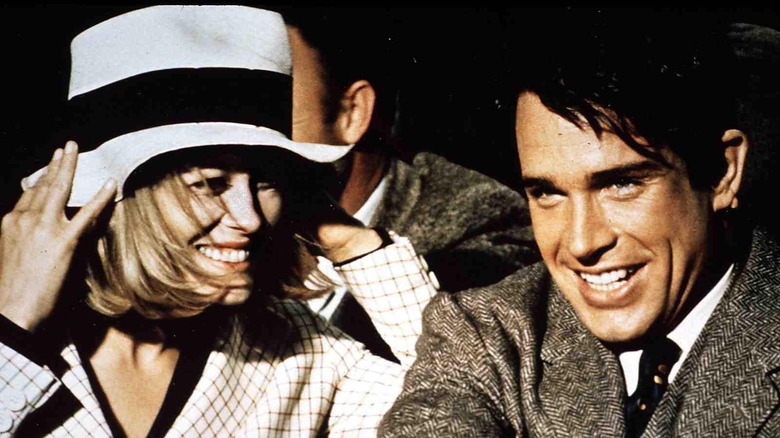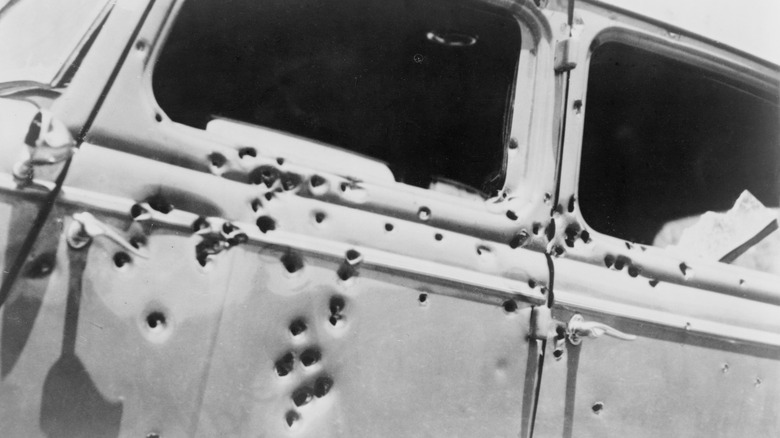How Historically Accurate Is The 1967 Film Bonnie And Clyde
The 1967 American classic "Bonnie and Clyde" is one of cinema's most marveled and exhilarating love stories. It merged fiery romance with a saga of crime that unspooled itself into a sort of erotic, sardonic Shakespearean tragedy of contemporary cinema. Picture "Natural Born Killers" but with a moral code, then add in some of the most celebrated actors in movie history — Faye Dunaway, Warren Beatty, Gene Wilder, Gene Hackman — and you'll get the idea (via IMDb). There's no doubt about it, "Bonnie and Clyde" is a Hollywood idol.
However, like most biopics of the big screen, the true story of Bonnie Parker and Clyde Barrow isn't exactly what Hollywood's version would lead us to believe. Yes, it's an exhilarating and seductive portrait of love that audiences were destined to adore, but biographer Jeff Guinn reports that less than 5% of the film's narrative is historically accurate (via NPR). Naturally, it begs the question of what really happened.
The true story
In 1930, Clyde Barrow met Bonnie Parker after a 20-month stay in prison. For nearly two years, the pair (accompanied by Barrow's brother and his wife at different times) spearheaded a vivacious crime spree that ultimately culminated in their demise. The movie certainly got this part right, but contrary to the cinematic narrative, the Barrow Gang rarely robbed banks. They settled for more poachable prey like restaurants, grocery stores, and gas stations. When they did take on a bank, it was generally based out of a small town and their bounty never exceeded $1,500 (per Britannica).
The fact that they didn't drain banks of their perceived predilection for manipulation and corruption confounds the movie's underlying theme that greatly contributed to its popularity. While their lasting notoriety is indeed warranted (several police officers died in shootouts trying to apprehend them), their tactics were generally understood to be sloppy and disorganized. That's probably why they wound up on the wrong end of bullets hailing from a police blockage in Michigan while driving a stolen car (per Britannica).

